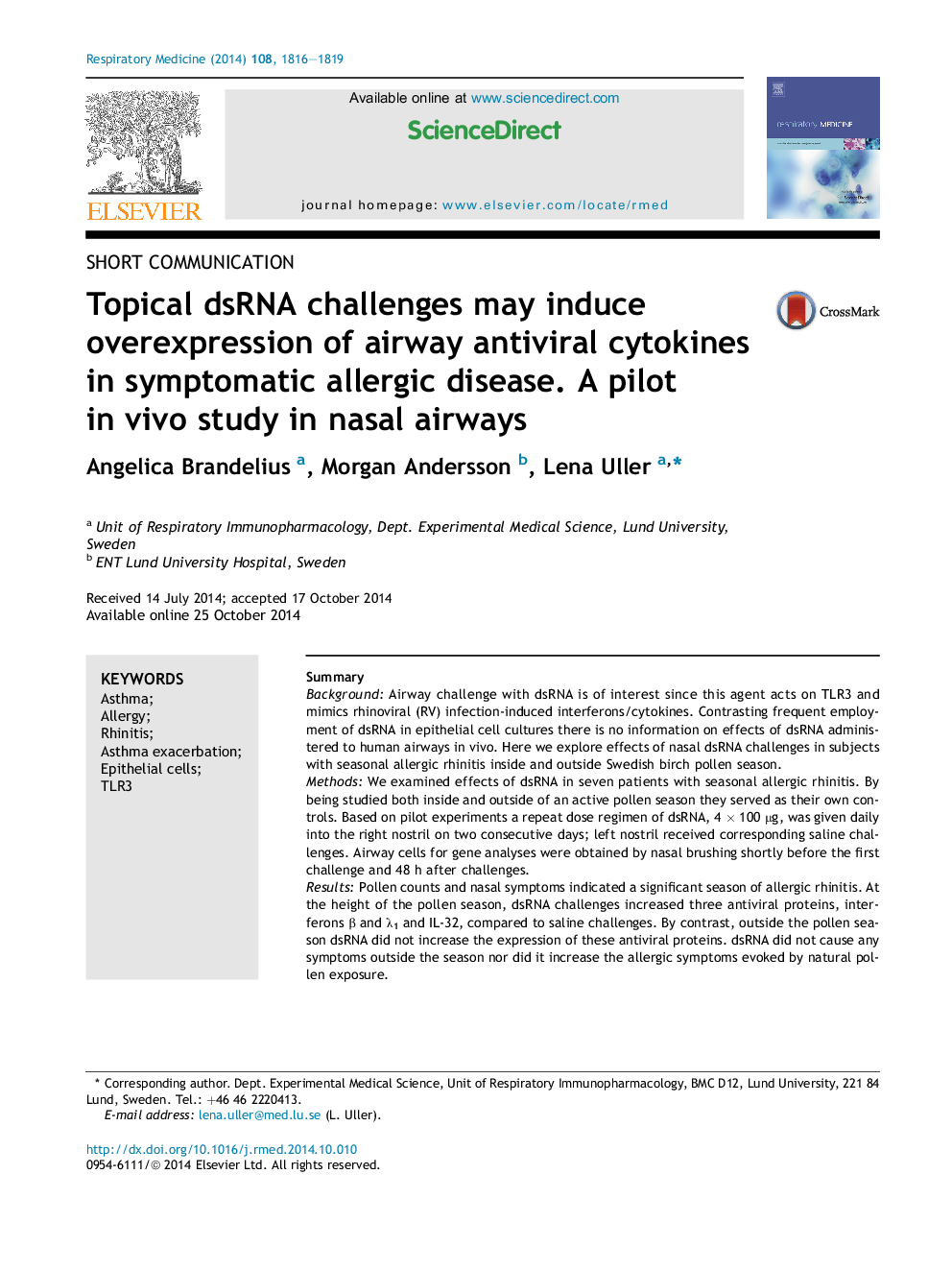| Article ID | Journal | Published Year | Pages | File Type |
|---|---|---|---|---|
| 6241947 | Respiratory Medicine | 2014 | 4 Pages |
SummaryBackgroundAirway challenge with dsRNA is of interest since this agent acts on TLR3 and mimics rhinoviral (RV) infection-induced interferons/cytokines. Contrasting frequent employment of dsRNA in epithelial cell cultures there is no information on effects of dsRNA administered to human airways in vivo. Here we explore effects of nasal dsRNA challenges in subjects with seasonal allergic rhinitis inside and outside Swedish birch pollen season.MethodsWe examined effects of dsRNA in seven patients with seasonal allergic rhinitis. By being studied both inside and outside of an active pollen season they served as their own controls. Based on pilot experiments a repeat dose regimen of dsRNA, 4 Ã 100 μg, was given daily into the right nostril on two consecutive days; left nostril received corresponding saline challenges. Airway cells for gene analyses were obtained by nasal brushing shortly before the first challenge and 48 h after challenges.ResultsPollen counts and nasal symptoms indicated a significant season of allergic rhinitis. At the height of the pollen season, dsRNA challenges increased three antiviral proteins, interferons β and λ1 and IL-32, compared to saline challenges. By contrast, outside the pollen season dsRNA did not increase the expression of these antiviral proteins. dsRNA did not cause any symptoms outside the season nor did it increase the allergic symptoms evoked by natural pollen exposure.ConclusionThese findings suggest the possibility that active mucosal inflammation, induced by natural allergen exposure in human airways, transiently increases in vivo antiviral responsiveness of airway surface cells.
